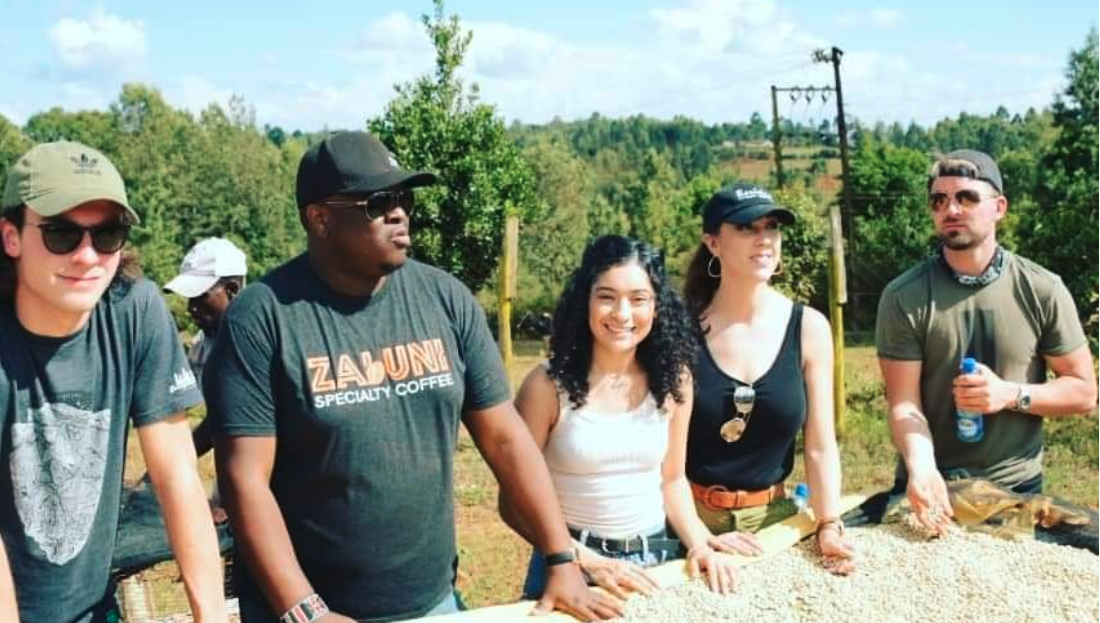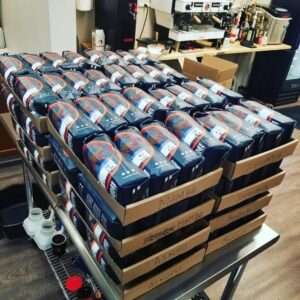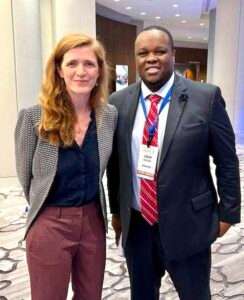
Kenya native is among Nebraskans seeking to help shape U.S. foreign policy
By CINDY GONZALEZ
Nebraska Examiner
Laban Njuguna says he’s “just a boy born in Kenya” whose journey led him to central Nebraska, where he launched an international coffee trade business just months before the pandemic struck.
He and his wife, Cora, pushed through the crisis, initially adapting their business model and later expanding to link American buyers to farmers in Ethiopia as well as Kenya.

The couple’s Grand Island-based Zabuni Specialty Coffee Auction is now gaining traction as a provider of better wages and living conditions for many farm families in East Africa.
This week Njuguna took his personal story of resiliency and a push for more international connectivity to policymakers and lawmakers on Capitol Hill.
Shaping engagement abroad
He was in the nation’s capital as part of a Nebraska contingent attending the Global Impact Forum, which aims to shape the debate on U.S. engagement abroad at a time of growing conflicts and crises around the globe.
Njuguna and other Nebraskans on the U.S. Global Leadership Coalition gathered with leaders including Agriculture Secretary Tom Vilsack, retired Adm. James Stavridis with the Carlyle Group global investment firm and USAID administrator Samantha Powers. The Nebraskans also met with members of the Nebraska political delegation to urge full funding of the International Affairs Budget.
They say effective foreign policy and U.S involvement abroad is essential to combating disease, fighting hunger and addressing economic and supply chain struggles, all issues affecting their home front. Njuguna is particularly concerned with maintaining peace worldwide and says it begins by working together to improve areas such as health care, climate and agriculture.
“Sometimes with us being in the middle of the country, we feel like we’re far removed from a lot of this foreign policy impact, yet we’re not. Look at gas prices,” said Njuguna. “Whatever it is that will keep us safe here and make the world a better place, I am all down for that.”

Nebraska exports and trading
Nebraska’s economy overall is impacted, the Global Leadership Coalition says, noting that the state is home to brands and organizations with fast-growing international operations. Last year, Nebraska exported about $8 billion in goods worldwide and trade supported some 255,000 Nebraska jobs in 2019, according to Trade Partnership Worldwide and the International Trade Administration.
Njuguna said he offers a unique perspective to the debate as an immigrant small businessman contributing to his Nebraska community and benefiting from trade partnerships and international efforts supported by the Global Leadership Coalition.
“These efforts are not a waste of American taxpayer dollars,” said Njuguna. “There is a lot of potential out there and a lot of land mines that can be detonated or defused just by the approach we take.”
He said that 22 years ago, his parents sold property and did all they could to send him to study at a U.S. university.
Fell in love
The plan was to return to Nairobi after completing his education. But he fell in love with a girl from Aurora and, eventually, with her native state of Nebraska. The couple has four children.
After two years of research and setting up the coffee business on two different continents, Njuguna said he and Cora in 2019 officially launched Zabuni, a word that in Swahili translates to bid, auction or evaluate.
The idea was to provide a platform — Zabuni acts as an auction service — where African farmers and American roasters connect. Roasters gain access to high-quality coffee beans, while the farmers are empowered as their own brand ambassadors.
Njuguna describes his model as unique for its industry and similar to eBay, a vehicle to buy and sell. Zabuni brings coffee beans grown by small African farmers closer to U.S. buyers, setting up the farmers for profits they haven’t seen before.
Pivoted to keep lights on
Just months after the launch, though, COVID-19 hampered operations. The company, headquartered at a 30,000-square-foot warehouse in Grand Island, turned to roasting and selling bags of African coffee.
“Roasted coffee sales is how we pivoted and were able to keep the lights on,” said Njuguna, adding that he now may add a permanent retail shop to the overall growing enterprise.
He said the pandemic is one example of an external factor outside one’s control affecting U.S. entrepreneurs like himself. He is a fan of better connections and relationships, believing that in the end those reap positive returns.
“The more interest we take globally, and the more we are able to resolve issues, the safer and better we are.”



